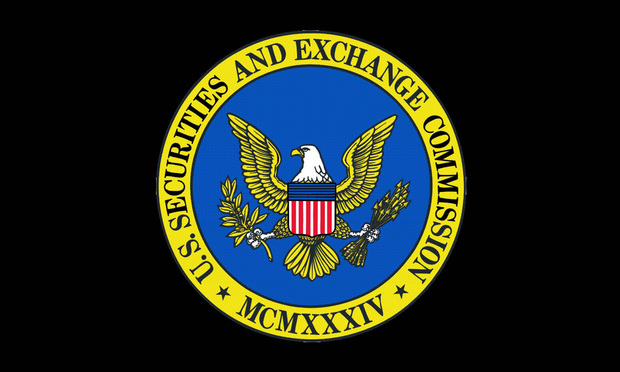Nick Akerman

July 24, 2015 | National Law Journal
How To Make Computer Fraud Claims StickEmployers need clear policies in order to use a federal criminal law as a civil remedy against workers.
By Nick Akerman
5 minute read

February 16, 2015 | National Law Journal
New Tools for Companies Against CybercrimeObama administration proposal would reduce legal ambiguities and allow civil RICO claims.
By Nick Akerman
5 minute read

February 13, 2015 | National Law Journal
New Tools for Companies Against CybercrimeObama administration proposal would reduce legal ambiguities and allow civil RICO claims.
By Nick Akerman
5 minute read

October 20, 2014 | National Law Journal
To Catch an E-Thief — Under Federal Property LawAs businesses move away from paper documents, courts are poised to broaden 'conversion' definition.
By Nick Akerman
5 minute read

June 30, 2014 | National Law Journal
SEC Playing Bigger Role in CybersecurityBesides clarifying disclosure requirements, the agency is prompting companies to take proactive steps.
By Nick Akerman and Parker Schweich
5 minute read

April 28, 2014 | National Law Journal
Common Flaws in Computer Fraud Class ActionsLawsuits claiming unauthorized use of smartphone tracking technology are lacking key elements.
By Nick Akerman
5 minute read

December 23, 2013 | National Law Journal
A Weapon Against Hackers on the Home FrontAlthough headlines have focused on foreign cyberattacks, plenty are U.S.-based — and can be remedied.
By Nick Akerman
7 minute read
May 26, 2008 | National Law Journal
The law fits the crimeOn May 15, Lori Drew, a 49-year-old woman, was indicted by a Los Angeles federal grand jury for using a MySpace account to torment and harass a 13-year-old girl who, as a result, committed suicide. Drew was charged with violating the federal Computer Fraud and Abuse Act. The press reports almost universally questioned the propriety of using the CFAA as the basis for this prosecution. Yet, while this may be the first CFAA prosecution for cyberbullying, the statute neatly fits the facts of this crime.
By Nick Akerman / Special to The National Law Journal
5 minute read

August 29, 2005 | National Law Journal
CFAA Resembles RICOThe federal Computer Fraud and Abuse Act (CFAA) is fast becoming one of the most expansive and potent civil statutes in a civil litigator�s arsenal. Like the civil remedy in the Racketeer Influenced and Corrupt Organizations Act, the CFAA encompasses a panoply of crimes upon which a civil remedy can be predicated. The CFAA should be considered as a cause of action whenever there is evidence relating to the use of computers in perpetrating a wrongful act.
By Nick Akerman
9 minute read

October 18, 2004 | National Law Journal
CFAA's $5,000 ThresholdNexans Wires sued its direct competitor, Sarkuysan, in federal court alleging that it had induced two individuals to engage in economic espionage by stealing computer data belonging to Nexans Wires. However, the judge dismissed the complaint for failure to allege the $5,000 "loss" threshold under the Computer Fraud and Abuse Act. The plaintiff claimed that the expenses of two executives who had meetings at Le Cirque to discuss the situation met the threshold, but the judge held that there was no evidence.
By Nick Akerman
9 minute read
Trending Stories
- 1The Fearless Forecaster’s Employment Law Predictions for 2025
- 2Judicial Conference Declines Democratic Request to Refer Justice Thomas to DOJ
- 3People in the News—Jan. 2, 2025—Eastburn and Gray, Klehr Harrison
- 4Deal Watch: Latham, Paul Weiss, Debevoise Land on Year-End Big Deals. Plus, Mixed Messages for 2025 M&A
- 5Bathroom Recording Leads to Lawyer's Disbarment: Disciplinary Roundup
More from ALM
- Scan In Progress: Litigators Leverage AI to Screen Prospective Jurors 1 minute read
- Legal Speak at General Counsel Conference East 2024: Match Group's Katie Dugan & Herrick's Carol Goodman 1 minute read
- Legal Speak at General Counsel Conference East 2024: Eric Wall, Executive VP, Syllo 1 minute read



